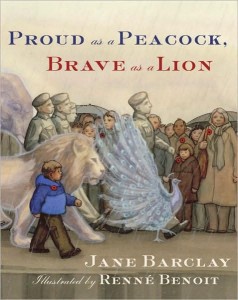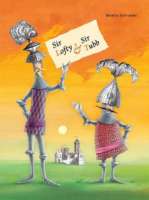 In a world where all pleasures are severely restricted, Melkin Womper is apprenticed to a master painter where he discovers the Mirrorscape, a world inside paintings, and becomes entangled in a war between the restrictive Fifth Mystery and the rebels fighting to stop them.
In a world where all pleasures are severely restricted, Melkin Womper is apprenticed to a master painter where he discovers the Mirrorscape, a world inside paintings, and becomes entangled in a war between the restrictive Fifth Mystery and the rebels fighting to stop them.
War
The First Marathon: The Legend of Pheidippides
Twenty-five hundred years ago, in ancient Greece, a small band of Greek soldiers faced the mighty Persian army on the plain of Marathon. A runner named Pheidippides ran to neighboring Sparta, one hundred forty miles away, to ask for the Spartans’ aid. Afterwards he sped back to the battle, where he helped defeat the enemy. Then the weary runner did his duty yet once more; he ran from Marathon to Athens to deliver the miraculous news of the Greek victory. The legend of brave Pheidippides has inspired the running of marathons worldwide.
The Trojan Horse
A retelling of the famous Greek myth follows Helen, the beautiful wife of King Menelaus of Greece, as she falls in love with Paris, the son of the King of Troy, and flees with him to Troy, an act that begins the Trojan War.
The Bearskinner: A Tale of the Brothers Grimm
A dejected soldier makes a pact with the devil in this haunting, ultimately hopeful fairy tale. When a person gives up hope, is he still human? Such is the story of a soldier who has lost everything to war: his childhood home, his family and friends, his youth, and his innocence. Enter that sly opportunist, the devil, who wraps the soldier in the armor of a dead bear’s skin, fills its pockets with gold, and makes a dangerous and horrible wager.
Truce
On July 29th 1914, the world’s peace was shattered as the artillery of the Austria-Hungary Empire began shelling the troops of the country to its south. What followed was like a row of falling dominoes as one European country after another rushed into war. Soon most of Europe was fighting in this calamitous war that could have been avoided. This was, of course, the First World War.
But who could have guessed that on December 25 the troops would openly defy their commanding officers by stopping the fighting and having a spontaneous celebration of Christmas with their “enemies”?
Proud as a Peacock, Brave as a Lion
 Much has been written about war and remembrance, but very little of it has been for young children. As questions come from a young grandchild, his grandpa talks about how, as a very young man, he was as proud as a peacock in uniform, busy as a beaver on his Atlantic crossing, and brave as a lion charging into battle. Soon, the old man’s room is filled with an imaginary menagerie as the child thinks about different aspects of wartime. But as he pins medals on his grandpa’s blazer and receives his own red poppy in return, the mood becomes more somber.
Much has been written about war and remembrance, but very little of it has been for young children. As questions come from a young grandchild, his grandpa talks about how, as a very young man, he was as proud as a peacock in uniform, busy as a beaver on his Atlantic crossing, and brave as a lion charging into battle. Soon, the old man’s room is filled with an imaginary menagerie as the child thinks about different aspects of wartime. But as he pins medals on his grandpa’s blazer and receives his own red poppy in return, the mood becomes more somber.
Outside, the crowd gathered for the veterans’ parade grows as quiet as a mouse, while men and women — old and young — march past in the rain. A trumpet plays and Grandpa lays a wreath in memory of his lost friend. Just then, the child imagines an elephant in the mist. “Elephants never forget,” he whispers to his grandpa. “Then let’s be elephants,” says the old man, as he wipes water from his eyes and takes his grandson’s hand.
Proud as a Peacock, Brave as a Lion has relevance to a growing number of families, as new waves of soldiers leave home.
Why War is Never a Good Idea
Sir Lofty and Sir Tubb

When two neighboring kingdoms argue over a beautiful flower it turns into war. The couples learn to share and bring peace to their lands.
Gulf

An adolescent boy must save his younger brother when he becomes psychically linked to a doomed Iraqi soldier during the Persian Gulf War.


